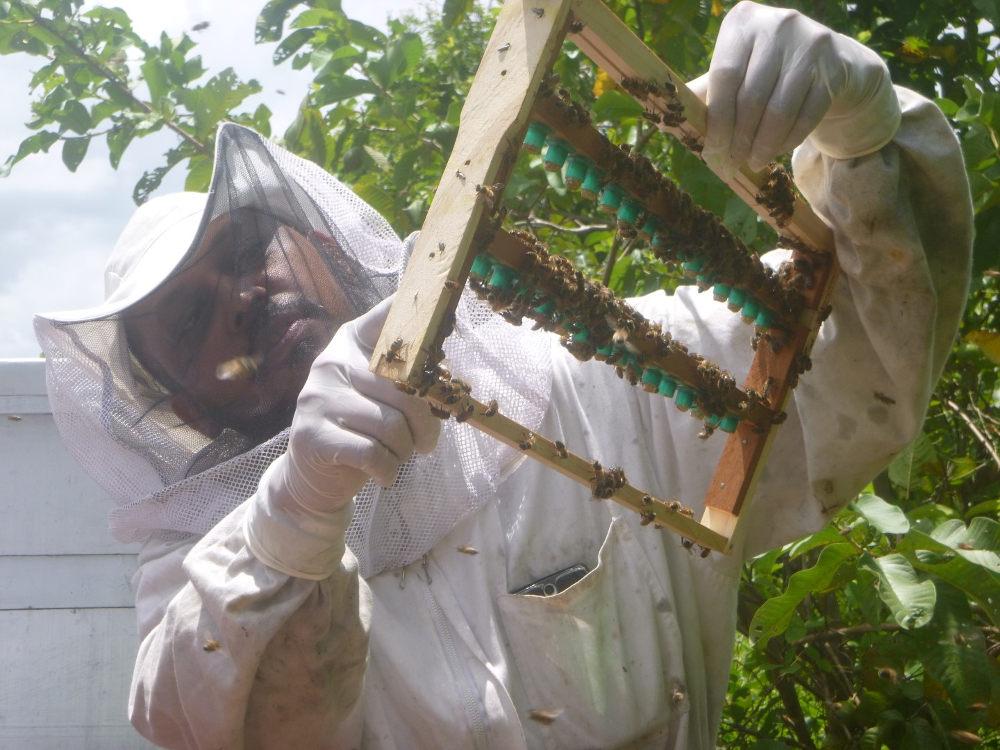Lead beekeepers from Vanua Levu are undertaking a weeklong training (20-24 February) in an effort to revive Fiji’s honey industry, which was devastated by Tropical Cyclone Winston.
This training is one of the TC Winston recovery activities of the EU-funded "Increasing Agricultural Commodities Trade" (IACT) project, implemented by the Pacific Community (SPC). The IACT project provided approximately FJD 4 million in recovery support, mainly focused on rebuilding and strengthening key value chains in the agriculture and aquaculture sectors.
The beekeeper training, facilitated by Fiji Beekeepers Association President, John Caldeira, will help beekeepers restore and enhance their beehives, which will increase honey production and improve quality of honey produced.
The training focuses on bee biology and sociology and provide hands-on advice on bee grafting techniques.
“There are great opportunities within the realm of disaster risk reduction that aim at improving livelihoods, food and nutrition security but also offering ample opportunities for market driven resilience and value chain enhancement. The training provided to beekeepers is an excellent example of how this can be pursued,” SPC Land Resources Division Director, Jan Helsen said.
To complement the training, beekeepers will be provided with material to assist with re-establishing their farms.
The EU Delegation for the Pacific, Head of Cooperation, Christoph Wagner said: "Through a range of different initiatives the European Union has been proud to play an important role in Fiji's recovery process following the destruction caused by TC Winston one year ago. This very practical training and the equipment provided to over 200 bee farms will help beekeepers get back on their feet. The newly acquired skills will assist the farmers to increase the volume and quality of their production, and therefore income and resilience."
Prior to TC Winston, the local honey sector was estimated to be worth FJD 3.5 million and it was predicted to become one of Fiji’s big earners in the agriculture sector in years to come. TC Winston was a major setback to the development of the Fijian honey sector. A survey carried out by the Ministry of Agriculture found that the majority of Fijian bee farms lost some of their hives during the cyclone, causing a sharp drop in honey production in 2016.
“One of the major challenges to growing the honey industry, even before TC Winston, is the lack of technical knowledge and skills among our beekeepers. With this training, experienced beekeepers are taught the best methods of increasing the number of hives and how to maintain healthy bee colonies. The training was necessary, not only for recovery, but also to build a resilient honey sector that would strengthen the supply chain,” Mr Caldeira, said.
This is the second of two trainings. The first was carried out last week in Ba and was attended by lead beekeepers from Viti Levu.
Media contact:
Vivita Matanimeke, SPC Communications Assistant, [email protected] or +679 337 0733
About us:
The Pacific Community (SPC) is the principal scientific and technical organisation in the Pacific region, proudly supporting development since 1947. It is an international development organisation owned and governed by its 26 country and territory members.
